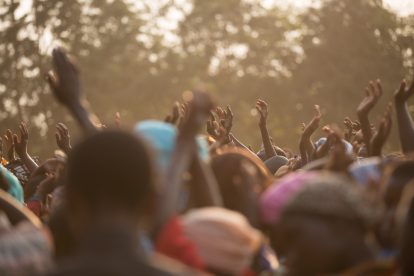
Foreign interventions and transnational insurgencies in the Sahara-Sahel
2019-2020
Co-Principal Investigators at UF: Assistant Professor Olivier J. Walther (lead researcher) and Professor Leonardo A. Villalón. Collaborator: Mr. Matthew Pflaum. Lead at OECD: Dr. Marie Trémolières. Consultants: Assistant Professor Steven M. Radil and Mr. David Russell.
Background
Since the end of the Cold War, the legitimacy of several African states has been challenged by a mix of rebel groups calling for more political autonomy, violent extremist organizations affiliated with Al Qaeda or the Islamic State, and local self-defense groups created in response to the rise in organized violence on the continent.
The situation is particularly worrying in the Sahel and Sahara, a region where violent extremist organizations and secessionists rebels have recently thrived on the porosity of state boundaries and the inability of states to fully control their own territory.
The degrading security situation has led Western countries to intervene militarily in the hope of stabilizing the region, preventing the spread of extremist ideas and ending violence against civilians. In parallel, African countries have formed coalitions that, in addition to pooling military personnel and material, allow sharing of intelligence on the spatial patterns of rebels and violent extremist organizations. These initiatives have however faced numerous obstacles and met with mixed results.
Objective
The objective of this project is to analyze recent and/or resurgent factors of violence in West Africa, their characteristics and evolution. Using maps and graphs, the University of Florida Sahel Research Group will examine insecurities and their interactions through a regional and multidimensional perspective.
Methodology
The project will first develop reliable data on the spatial patterns and social networks of violent extremist organizations in the Sahara-Sahel over time and at the smallest possible geographic and temporal scale for analysis. Three case studies where terrorist organizations have developed particularly rapidly since the mid-1990 or have been significantly affected by Western-led offensives will be considered: the civil war in Mali, the Boko Haram insurrection around Lake Chad, and the civil war in Libya.
In these conflicts, the relationships between the belligerents are often characterized by complex sets of alliances and conflicts that change over time. As a result, groups that were allied one day can fight each other the next. A similar volatility characterizes individual combatants, whose allegiance to the government, rebel forces or violent extremist groups can change rapidly. This fluid environment will be mapped using dynamic social network analysis.
The project will then leverage the data generated in the three cases above to investigate the effect of foreign interventions on the networks of alliances or conflict between violent extremist organizations in the region.
Do foreign interventions lead armed groups to align with the side they believe has the highest chance of winning the conflict or do they reinforce internal divisions within groups? How should foreign powers choose between competing groups in conflict? Which intervention strategy is more likely to promote cooperation between warring parties while also reducing conflict?
Without reliable answers to these questions, policy makers are forced to develop foreign policy in a partial information vacuum, which at times feeds growing public perceptions of Western states as perpetually at war with an undefined enemy.
Funding
This project is funded by the OECD Sahel and West Africa Club (SWAC) as part of its annual report on security. It builds on a 2017 memorandum of understanding between the University of Florida and the OECD.
Related work
– Trémolières M, Walther O, Radil S. (eds) 2020. The Geography of Conflict in North and West Africa. (French) Paris, OECD Publishing.
– Walther O, Leuprecht C, Skillicorn D. 2020. Political fragmentation and alliances among armed non-state actors in North and Western Africa (1997-2014). Terrorism and Political Violence 32(1): 167-186.
– Walther O, Radil S, Russell D. 2019. Mapping the geography of political violence in North and West Africa. OECD Development Matters, 17 Oct.
– Walther O, Miles W. (eds) 2018. African Border Disorders. Addressing Transnational Extremist Organizations. New York, Routledge (read).
Video Summary (French)
UF Geography Colloquium – Geography of Conflict in North and West Africa, by Dr Walther.